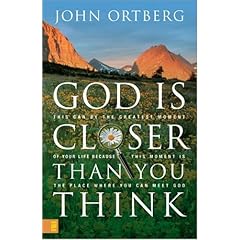 Larry Crabb doesn't much like going to church anymore. And he's not alone. That's actually the title of the Introduction to the book Real Church: Does It Exist? Can I Find It? by Larry Crabb.
Larry Crabb doesn't much like going to church anymore. And he's not alone. That's actually the title of the Introduction to the book Real Church: Does It Exist? Can I Find It? by Larry Crabb.Depending on your own perspective, I can imagine people calling the book anything from a rant to a compelling, transparent look at both the church and the person. My perspective is much like the authors. I don't much like going to church anymore either. I definitely wouldn't call this a rant.
The author is transparent and honest and represents both sides of some of his own arguments. Just reviewing the chapter titles will show you where the author's thoughts travel.
Chapter 1: Why Have We Lost Interest in Church?
Chapter 2: Why Do So Many People Still Attend Church and Like It?
Chapter 3: So What Is It that Makes a Gathering a Church?
Chapter 4: So What Is It that Causes a Gathering to Cease Being a Church?
And those were just the chapters of the introduction. The author goes on to examine the question, "Why should I go to church?" The next five chapters examine three answers to that question that just don't work:
- "It will make my life better;"
- "It will show me how to change my world;"
- "It will offer salvation and help for righteous living."
For me the most compelling part of the book was in Chapter 20. The third section is titled "Marks of the Church I Want to Be Part Of" and chapter 20 is Mark #3: Finds Contentment in Wanting What Jesus Wants.
Listen to Jesus: "May they [His followers] be brought to complete unity to let the world know that you sent me" (John 17:23, emphasis mine). Francis Schaeffer called it God's "final apologetic." What he meant, I think, was this: how we get along with one another is the most persuasive evidence the Holy Spirit has to work with as He draws people to Jesus (emphasis in the original).
Jesus calls his church to unity. Why wouldn't we expect difficulty, even satanic attack, at that very point. Maybe that's why church seems to be such a performance any more with so little community (at least in my own personal experience).
If you're having trouble with church, I recommend the book. I believe the author managed to engage in constructive examination and pursuit of a deeper relationship with Jesus. Now if more church elders and staff people would read it too.














